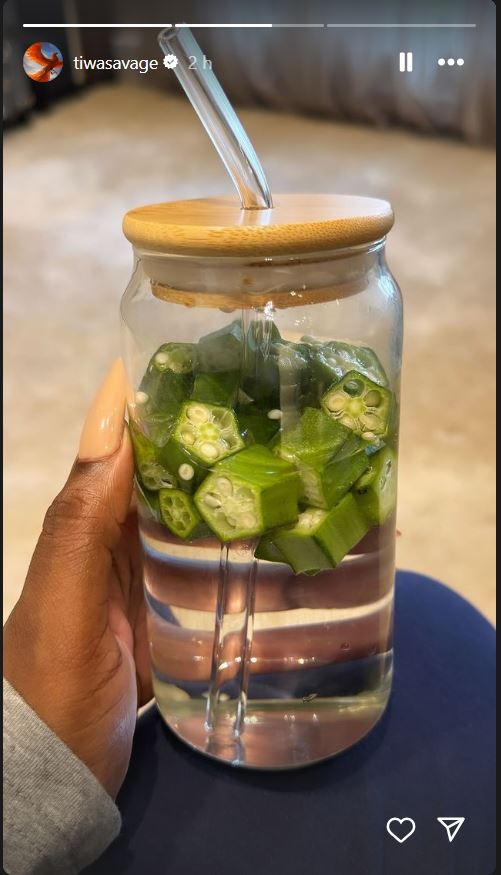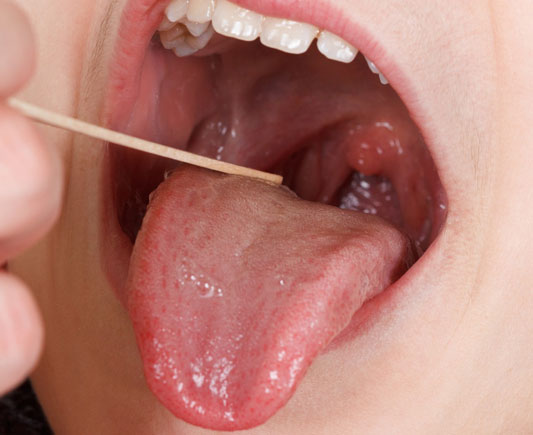Health
How to survive the rainy season in Lagos without a car

So it’s a cold September month in the city of Lagos and it’s drizzling.
You can smell the rain in the air and the cold breeze sweeps into your room as your alarm rings to get you out of bed.
A thought creeps into your mind to curl back into bed and call in sick, but appraisals are around the corner. So you get out of bed and take a quick shower ready to brave a rainy, wet Lagos.
As you step out of the house, a slight drizzle begins and you ponder whether to go back in and get an umbrella, or just brave the weather and see how it goes as you are already running late.
Common sense prevailed and you went back in, thankful for your decision as the rain intensified on your approach to the bus stop.
Surviving the city of Lagos during the rainy season requires a certain skill and knowledge set that I will share with you.
White pants/ skirts are outlawed during this period. Except expressly required by your job, white tops and shirts are also to be discarded during the rains.
I know white shirts are very desirable, especially on Mondays; please do not fall for the temptation of wearing them.
The risk of water being splashed on you is very high and you do not want to appear at work with a stained shirt.
You have to know the exact topography of any road that you regularly walk on this season. Knowledge of where the road ends and drainage begins (Lagos has mostly open drainages so you can fall into them) is also necessary.
Also know the exact location of manholes, covers of which may have been stolen. Look out for potholes, these puddles are filled with water, and Lagos drivers are not endowed with the spirit of kindness and consideration for pedestrians.
In the event you fall foul of the puddle water, learn to hurl abuse and the symbolic hurling of stones in the direction of the erring vehicle as a Lagosian would do.
Decide early on before the rains come if you would wear a raincoat or carry an umbrella during the season, both have their plus and minus.
The umbrella – preferably medium-sized- is most functional, as it keeps you dry and is easy to fold away in a bus.
You have to master the fine art of folding it away, just as the inevitable struggle for an approaching danfo bus begins so as to avoid causing injury to others.
This is except if you board the well-organized BRT buses, in which case you can keep it open until you get on the bus.
Sharp Lagos business has produced a nylon Raincoat that comes in many colors and is readily available at bus stops in the event the rain catches you unawares.
The only issue is taking them off when you board a bus; as I am not sure other passengers would appreciate a wet seatmate.
Befriend colleagues or neighbours with cars that ply your route ahead of time. The rainy season is not the time for ego, grudges, perceived slights, and temper tantrums.
As much as you can, try and get into the good graces of your work colleagues and neighbors who can drop and pick you up thereby saving you the vagaries of a wet Lagos.
Monitor the weather reports on the news and on your phone, but also learn to “smell” and look out for rain.
The smelling part is something your senses pick up over time when you live in a coastal city such as Lagos.
It’s very normal to see Lagosians looking up at the sky intermittently to notice any swift change in the weather as they go about their business.
Be nice to small shop and stall owners along your route home (especially the distances you have to walk). You never know the day a sudden downpour will necessitate you to take refuge in Mama Nkechi’s shop.
Invest in rubber footwear to tread water freely and not worry about damage to your leather shoes.
Leave your shoes at work or pack them in a bag to keep them dry. There is an assortment of rubber slides, shoes, rainboots, and all available to meet your fashion needs.
Have a change of dry clothes handy. No umbrella or raincoat can insulate you from the Lagos downpour when it’s loose.
Bus shelters are a rarity in these parts and having dry clothes is insurance for such times.
Lastly, pray for the favor of the gods so you can buy a car. Lagos rain is not going to stop or relent anytime soon and you cannot infinitely rely on the goodwill of others.
Health
7 health benefits of eating seaweed

Seaweed, also known as kelp, nori, or marine algae, comes in a variety of shapes, sizes, and colours.
Each variety offers its distinct taste and texture. Seaweed is surprisingly versatile and can be enjoyed in a multitude of ways.
Here are 7 amazing reasons to consider adding a touch of the ocean to your plate:
1. Nutrition
Seaweed is a nutritional goldmine, brimming with essential vitamins and minerals that your body needs to thrive. It’s an excellent source of iodine, a vital mineral for healthy thyroid function. Just a small amount of seaweed can meet your daily recommended intake of iodine, helping to regulate your metabolism, energy levels, and brain function.
Seaweed is also a good source of vitamins A, C, E, and K, all essential for maintaining a healthy immune system and promoting cell growth and repair. Seaweed is also a natural source of magnesium, essential for regulating blood pressure and muscle function, as well as iron, which helps transport oxygen throughout your body.
It contains calcium, crucial for strong bones and teeth, and potassium, which helps maintain healthy blood pressure.
2. Gut health
The human gut is a complex ecosystem teeming with trillions of bacteria, both good and bad. A healthy balance of these microbes is crucial for health and digestion. Seaweed is a prebiotic, meaning it provides nourishment for the good bacteria in your gut. These friendly bacteria help with digestion, and nutrient absorption, and even play a role in immune function.
By feeding these good bacteria, seaweed helps to create a thriving gut environment that keeps you healthy. Studies have shown that a balanced gut microbiome can help reduce the risk of digestive issues like constipation and irritable bowel syndrome, as well as strengthen your immune system against harmful pathogens.
3. Weight management
If you’re looking for a natural way to manage your weight, seaweed might be your new best friend. Seaweed contains a type of fibre called alginate, which forms a gel-like substance in your stomach. This gel helps you feel fuller for longer, promoting satiety and reducing cravings. This, in turn, can lead to a decrease in overall calorie intake and support weight management efforts.
In addition to its fibre content, seaweed is naturally low in calories and fat, making it a guilt-free way to add variety and nutrients to your meals.
4. Heart health
Heart disease remains a leading cause of death worldwide. The good news is that seaweed might offer some protection for your heart. Seaweed contains healthy fats, including omega-3 fatty acids, which have been shown to promote heart health by reducing inflammation, lowering bad cholesterol levels, and improving blood pressure.
Seaweed may also help to prevent blood clots, which can block arteries and lead to heart attacks and strokes. Furthermore, its rich supply of antioxidants helps fight free radicals that can damage blood vessels and contribute to heart disease.
5. Blood sugar control
For people with diabetes, managing blood sugar levels is crucial. Seaweed might offer some unique benefits in this regard. Studies suggest that certain types of seaweed, like wakame and fucoidan, may help regulate blood sugar levels. These seaweeds may slow down the absorption of carbohydrates in the gut, preventing blood sugar spikes after meals.
Additionally, seaweed may improve insulin sensitivity, allowing your body to utilise insulin more effectively and keep blood sugar levels under control.
Health
Five benefits of drinking Okra water

Of recent, the trend of drinking okra water has gained traction backed with compelling evidence of its numerous health benefits.
In this article, we dive into the world of okra water and uncover five amazing key benefits of incorporating okra water into your daily diet, thereby unlocking the nutritional power hidden within:
Improved digestive health
Okra water is rich in soluble fiber, which aids digestion by promoting regular bowel movement and preventing constipation. It contains a gel like substance called mucilage that soothes and coats the digestive tract, reducing inflammation and easing symptoms of gastrointestinal discomfort. regular consumption of okra water can contribute to a healthier digestive system .
Weight Loss Management
Okra is low in calories and contains high fiber content, which can help make one fuller for longer . The soluble fiber in okra water helps increase feelings of fullness reducing appetite as well as unnecessary cravings. By including okra water into a balanced diet, individuals can support their weight loss goal in a sustainable manner.
Blood Sugar regulation
If you are watching your blood sugar levels or have a loved one doing so, this benefit of okra water would be really helpful as it tends to have potential benefits for blood sugar regulation. Okra contains soluble fiber, which can slow down the absorption of sugar in the digestive system, helping to stabilize blood sugar levels . By incorporating okra water into your diet, you may experience more consistent blood sugar levels and reduce the risk of complications associated with diabetes.
Heart Health Promotion
Okra is rich in nutrients like fiber, antioxidants and vitamins that contribute to a healthy heart. The fiber content in okra can help lower cholesterol levels, while the antioxidants can help reduce inflammation and protect against heart disease. However, it’s important to remember that okra water alone is not a magic solution. A balanced diet, regular exercise, and overall healthy lifestyle are key for promoting heart health.
Skin and Hair Benefits
Okra water contains vitamins and minerals, including vitamin C and biotin, which can indeed benefit both skin and hair health. Vitamin C acts as an antioxidant, helping to protect the skin from oxidative damage caused by free radicals, thereby promoting healthier skin. Biotin, also known as vitamin B7, supports the health of hair by promoting stronger, thicker strands. Incorporating okra water into your diet or using it in beauty treatments may provide a natural way to enhance the health and appearance of your skin and hair.
With this benefits of okra water stated, if you happen to be a naysayer to okra water, you should definitely think about its benefits.
Health
Symptoms, risk factors, treatment — what to know about throat cancer

On Thursday, Ogbonnaya Onu, a former minister of science and technology in the Muhammadu Buhari administration, died aged 72.
Reports suggest that Onu, who was the first civilian governor of Abia state, grappled with throat cancer before his demise.
If you came across the news, you may have wondered for a quick minute about throat cancer and maybe imagined how the symptoms would physically manifest. Perhaps you imagined a lesion or even a swollen neck.
What is throat cancer?
It refers to a type of cancer that develops in the throat, also known as the pharynx.
The human throat is a muscular tube that begins behind the nose and ends in the neck. The voice box sits below the throat and contains the vocal cords.
The two types of throat cancer are pharyngeal and laryngeal cancers, also known as cancer of the pharynx and the larynx.
What are the symptoms of throat cancer?
Symptoms of throat cancer include persistent cough, sore throat, a lump in the throat that does not heal, changes in voice, such as hoarseness or not speaking clearly, difficulty swallowing, ear pain, and sudden weight loss.
What causes throat cancer?
Throat cancer occurs when cells in the throat develop genetic mutations that cause them to grow uncontrollably. The continuous growth kills the normal cells. Then, the accumulating cells can form a tumour in the throat.
It is not clear what causes the mutation that leads to throat cancer. There are, however, factors that can increase the risk of throat cancer.
These risk factors include a family history of cancer, smoking and chewing tobacco, excessive alcohol intake, viral infections including human papillomavirus (HPV) and Epstein-Barr virus, and a diet lacking in fruits and vegetables.
How can one reduce the risk of having throat cancer?
While there are no scientifically proven ways to prevent throat cancer, there are ways to reduce its risk such as eating a diet rich in fruits and vegetables, drinking alcohol in moderation, avoiding smoking, and protecting oneself from HPV.
How is throat cancer diagnosed?
Throat cancer diagnosis involves a few steps. A physical examination will be performed in which a doctor will examine the mouth and throat.
The examination also involves a series of blood tests, while an endoscopy will be carried out.
An endoscopy is when a thin tube with a light on its end is inserted through the nose to look for abnormalities in the throat.
A chest x-ray and computerised tomography (CT) scan may also be carried out.
How is throat cancer treated?
Treatment of throat cancer will depend on the size of the tumour, whether it has spread all over the place, and the overall health of the patient.
The doctor will first need to find out what stage of cancer the individual has, that is, how far it has spread. This helps to determine the best treatment options.
Surgery may be recommended depending on the tumour size and chemotherapy may also be required.
-

 Business1 week ago
Business1 week agoX will start charging new users to post, says Elon Musk
-

 Entertainment1 week ago
Entertainment1 week agoJUST IN: Cubana Chief Priest pleads not guilty to naira abuse charge
-

 News1 day ago
News1 day agoFAAN reopens Lagos airport runway after Dana Air incident
-

 Entertainment1 week ago
Entertainment1 week agoCubana Chief Priest arrives court for naira abuse trial
-

 Celebrities1 week ago
Celebrities1 week ago‘Not see you for 6 months, impossible’ — Davido reacts to Cubana Chief Priest’s bail
-

 Business6 days ago
Business6 days agoElon Musk threatens to suspend X accounts doing engagement farming
-

 Celebrities1 week ago
Celebrities1 week agoKai Cenat threatens to sue OnlyFans model, Layla Red who leaked their chats
-

 World1 week ago
World1 week agoDubai international airport cancels flights as flood ravages runway, UAE


















